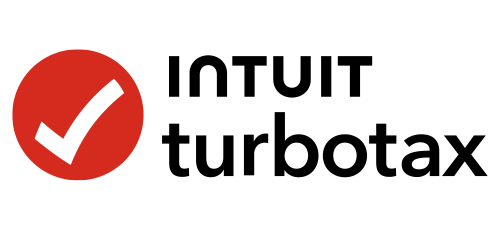With Expert 365, get expert help cleaning up your books for tax time, plus support on sales tax and payroll reporting year-round.
When Are Corporate Tax Returns Due?
TurboTax Canada
May 22, 2025 | 4 Min Read
Updated for tax year 2025


A new way to file your business taxes is here!
As a business owner, you’re no stranger to juggling due dates. Whether you’re signing off on quarterly reports, launching a new product, or bringing on new hires, there’s always a deadline to meet.
Still, there’s one deadline that can be tough to pin down, even though it comes around each year: We’ll explain your corporate tax filing due date, when corporate taxes are due, how to file your T2 tax return, and how to navigate the process of filing late—if it comes to that, of course.
Key Takeaways
- Corporate tax returns are due 6 months after the end of your fiscal year. For most businesses, fiscal year ends December 31 and tax returns are due June 30.
- If you miss your corporate tax return deadline, you risk facing penalties and interest charges.
- You can file your corporate T2 and T2 Short tax return online easily with TurboTax.
What is the corporate tax filing due date?
Businesses have 6 months after the end of their fiscal year to file their corporate tax return. If your fiscal year ends on the last day of the month, you have to file by the last day of the sixth month. For most businesses, their fiscal year ends on December 31, which means their corporate tax return deadline is the end of June.
If your tax due date falls on a weekend or statutory holiday, you can submit your return the next business day without penalty.
Defining "year-end" for corporations
When it comes to filing corporate taxes, "year-end" can vary for each business. That's because it's based on each company's fiscal year—the 12-month period that businesses use for reporting purposes. If your fiscal year ends on September 23, for example, your taxes will be due on March 23.
The difference between a corporate tax filing deadline and a payment deadline
Your corporate tax filing deadline usually isn't the same as your tax payment deadline. That's because corporations pay income tax in monthly or quarterly installments throughout the year.
Just like your filing deadline, your payment deadlines will depend on your fiscal year. If your fiscal year ends on December 31, for example, your monthly tax payments will be due by the last day of each month. If you still owe any income taxes come filing time, you'll need to pay them by your balance-due day, which is 2 months after the end of your fiscal year.
You can find your installment due dates by checking the “Calculate and pay installment payments” section of your My Business Account page.
How to qualify for an extended payment deadline
If you’re unable to pay your corporate tax installments or balance on time, you may incur interest and penalties. In some cases, however, the Canada Revenue Agency (CRA) may cancel or waive these penalties. This usually happens if businesses can’t make their payments due to circumstances beyond their control.
To submit your own request for cancelled penalties, go to “Request relief of penalties and interest” on your My Business Account page.
How to file a T2 tax return
There are 2 types of corporate returns you can use to file your taxes:
- T2 Corporation Income Tax Return. The T2 Corporation Income Tax Return is the standard form that most corporations use to file their taxes.
- T2 Short Return. The T2 Short Return is a simplified version of the T2 Return. Corporations must meet certain eligibility requirements to use a T2 Short Return. For example, these returns may be used by private corporations reporting no net income or a loss of income for the given tax year.
Can I file my corporate tax return online?
Yes. TurboTax makes it easy to file your T2 return online, yourself. With TurboTax Business Assisted, you can access unlimited guidance from a business tax expert while you prepare your return..
In fact, according to recent updates from the CRA, most corporations are now required to file their income tax returns electronically. CRA-certified software like TurboTax can submit your T2 electronically. There are only a few types of corporations that this rule doesn’t apply to, such as insurance corporations and non-resident corporations.
What happens if you miss the corporate tax return deadline?
If you miss your corporate tax return deadline, you might face certain penalties. If you file after your due date, for example, you’ll have to pay 5% of the tax due on the filing deadline plus 1% of the tax for each complete month that the return is late. Penalties may be greater if your corporation missed a previous tax filing deadline.
How TurboTax can help with your corporate tax return
Now that you know your tax filing due date, you just have to fill out and submit your return. That's where TurboTax Business can help.
Instead of navigating tax rules and regulations alone, lean on our experts for guidance. Ask questions throughout the year. Uncover new ways to save. And have tax experts review your return for accuracy—so you can submit with peace of mind, on time. TurboTax Business can also accurately do your T2 return for you, for less than an accountant. TurboTax also can offer expert year-round help with your corporate GST/HST questions and returns, as well as other bookkeeping help and payroll questions so you are ready to file.
Ready to file your T2?
If you have questions, our experts are here to help and offer guidance for you to maximize your corporate tax deductions and ensure your return is compliant with CRA regulations.
Related articles

© 1997-2024 Intuit, Inc. All rights reserved. Intuit, QuickBooks, QB, TurboTax, Profile, and Mint are registered trademarks of Intuit Inc. Terms and conditions, features, support, pricing, and service options subject to change without notice.
Copyright © Intuit Canada ULC, 2024. All rights reserved.
The views expressed on this site are intended to provide generalized financial information designed to educate a broad segment of the public; it does not give personalized tax, investment, legal, or other business and professional advice. Before taking any action, you should always seek the assistance of a professional who knows your particular situation for advice on taxes, your investments, the law, or any other business and professional matters that affect you and/or your business.









